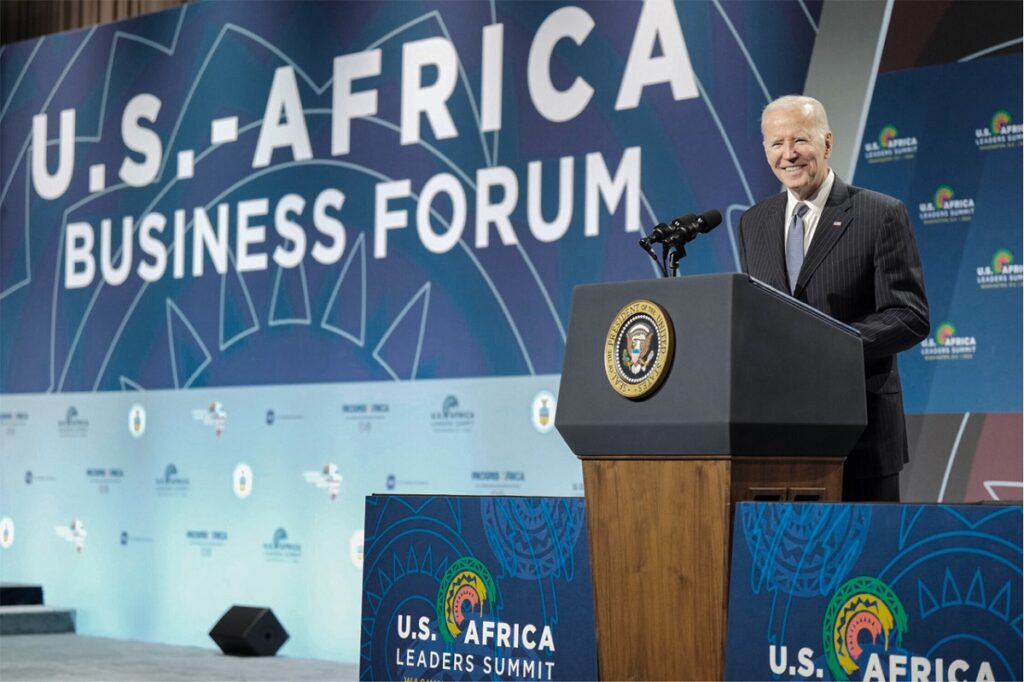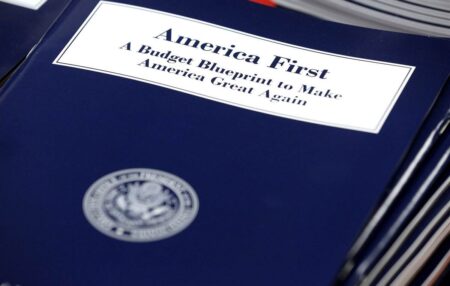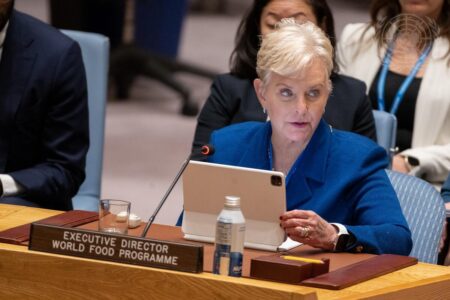- The proposed AGOA extension signals a commitment to bolstering trade relations between the US and Africa.
- US Senators Chris Coons and James Risch have introduced the bipartisan Agoa Renewal and Improvement Act of 2024, aiming to integrate AGOA with the AfCFTA.
- Bill aims to refine AGOA’s eligibility criteria, increase transparency, and hold US agencies accountable for their advice to the president: Senator Risch
AGOA extension proposal
The US Congress has proposed extending the African Growth and Opportunity Act (Agoa) to 2041, covering all 54 African countries. Senators Chris Coons of Delaware and James Risch of Idaho introduced the bipartisan Agoa Renewal and Improvement Act of 2024, aiming to integrate Agoa with the African Continental Free Trade Agreement (AfCFTA) to foster intra-African supply chains.
Originally enacted in 2000, Agoa is set to expire next year. However, the proposed extension signals a commitment to bolstering trade relations between the United States and Africa. Speaking at the fourth edition of the regional American Chamber of Commerce Kenya (AmCham) business summit in Nairobi, US Secretary of Commerce Gina Raimondo affirmed the administration’s dedication to renewing the act.
“This bipartisan bill aims to refine Agoa’s eligibility criteria, increase transparency, and hold US agencies accountable for their advice to the president,” remarked Senator Risch. The proposed update also includes provisions to eliminate requirements for textile visas, thereby facilitating Kenya’s apparel and clothing exports to the US.
Moreover, the bill mandates an annual Agoa Forum to enhance dialogue and cooperation between the act’s beneficiaries and the US. Kenya’s private sector, represented by Jas Bedi, chairperson of the Kenya Private Sector Alliance (Kepsa), expressed optimism about the potential of the proposed amendments to stimulate exports to the US market.
While the act primarily covers goods imported from sub-Saharan Africa, the proposed expansion would encompass all African countries. This move underscores the importance of aligning it with broader trade initiatives like AfCFTA to promote regional economic integration and development.
Read also: African Heads of State call for tripling of World Bank’s concessional financing
Bipartisan Agoa Renewal and Improvement Act of 2024
Additionally, the bill calls for a comprehensive study by the US International Trade Commission to assess the economic impact of adding new products to the act’s covered goods list. This reflects a commitment to modernizing the act to address evolving trade dynamics and enhance its effectiveness in promoting sustainable development across the continent.
Furthermore, the proposed amendments seek to address concerns regarding income inequality and forced labour. By extending eligibility for countries experiencing volatile GDP fluctuations and reinforcing prohibitions on goods produced with forced labour, the bill aims to uphold human rights and ethical labour practices in trade relations.
As the proposed Agoa Renewal and Improvement Act of 2024 gains momentum, stakeholders on both sides of the Atlantic are eager to explore the potential benefits of an extended and expanded Agoa framework. Beyond the immediate implications for trade policy, the proposed amendments signal a broader commitment to fostering mutually beneficial partnerships between the United States and Africa.
One key aspect of the proposed legislation is its emphasis on enhancing Agoa’s eligibility criteria and promoting transparency in trade relations. By refining eligibility standards and providing clearer guidelines for compliance, the bill aims to create a more predictable and conducive environment for trade and investment. This, in turn, can encourage greater participation from African businesses and entrepreneurs, fostering economic diversification and job creation across the continent.
Moreover, the inclusion of provisions to eliminate textile visas underscores the importance of streamlining trade procedures and reducing administrative burdens. Simplifying trade documentation not only facilitates smoother transactions but also enhances the competitiveness of African exporters in the US market. This is particularly significant for sectors like apparel and textiles, where Kenya and other African countries have a comparative advantage.
In addition to promoting trade in goods, the proposed amendments also seek to strengthen collaboration in other areas of economic activity. For instance, by mandating an annual Agoa Forum, the bill provides a platform for dialogue and cooperation on issues ranging from investment promotion to regulatory harmonization. Such mechanisms can help foster closer ties between Agoa beneficiaries and US stakeholders, paving the way for deeper integration and partnership.
Furthermore, the proposed expansion of the act to include all African countries reflects a recognition of the continent’s growing importance in the global economy. By embracing a more inclusive approach to trade policy, the United States can tap into Africa’s vast potential as a market and investment destination. This can catalyze growth and development on both sides of the Atlantic, creating new opportunities for businesses and communities alike.
Looking ahead, the success of the act and other trade initiatives will depend on continued engagement and collaboration between governments, businesses, and civil society. By working together to address common challenges and seize shared opportunities, the United States and Africa can build a stronger and more resilient partnership that benefits all stakeholders.
Read also: Job losses on the horizon as US drops four African countries from Agoa











